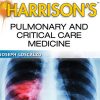Delirium and long term cognition in critically ill patients
bmj.comDelirium, a form of acute brain dysfunction, is very common in the critically ill adult patient population. Although its pathophysiology is poorly understood, multiple factors associated with delirium have been identified, many of which are coincident with critical illness.
To date, no drug or non-drug treatments have been shown to improve outcomes in patients with delirium. Clinical trials have provided a limited understanding of the contributions of multiple triggers and processes of intensive care unit (ICU) acquired delirium, making identification of therapies difficult.
Delirium is independently associated with poor long term outcomes, including persistent cognitive impairment. A longer duration of delirium is associated with worse long term cognition after adjustment for age, education, pre-existing cognitive function, severity of illness, and exposure to sedatives.
Interestingly, differences in prevalence are seen between ICU survivor populations, with survivors of acute respiratory distress syndrome experiencing higher rates of cognitive impairment at early follow-up compared with mixed ICU survivor populations.
Although cognitive performance improves over time for some ICU survivors, impairment is persistent in others.
Studies have so far been unable to identify patients at higher risk of long term cognitive impairment; this is an active area of scientific investigation.

















